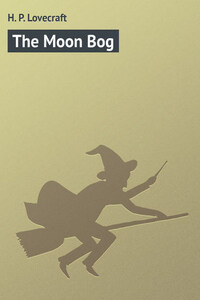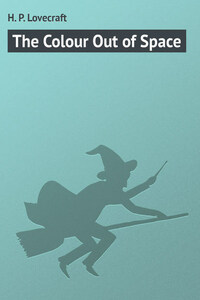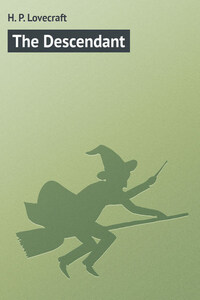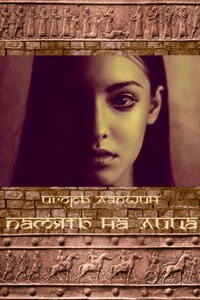Somewhere, to what remote and fearsome region I know not, Denys Barry has gone. I was with him the last night he lived among men, and heard his screams when the thing came to him; but all the peasants and police in County Meath could never find him, or the others, though they searched long and far. And now I shudder when I hear the frogs piping in swamps, or see the moon in lonely places.
I had known Denys Barry well in America, where he had grown rich, and had congratulated him when he bought back the old castle by the bog at sleepy Kilderry. It was from Kilderry that his father had come, and it was there that he wished to enjoy his wealth among ancestral scenes. Men of his blood had once ruled over Kilderry and built and dwelt in the castle, but those days were very remote, so that for generations the castle had been empty and decaying. After he went to Ireland, Barry wrote me often, and told me how under his care the gray castle was rising tower by tower to its ancient splendor, how the ivy was climbing slowly over the restored walls as it had climbed so many centuries ago, and how the peasants blessed him for bringing back the old days with his gold from over the sea. But in time there came troubles, and the peasants ceased to bless him, and fled away instead as from a doom. And then he sent a letter and asked me to visit him, for he was lonely in the castle with no one to speak to save the new servants and laborers he had brought from the North.
The bog was the cause of all these troubles, as Barry told me the night I came to the castle. I had reached Kilderry in the summer sunset, as the gold of the sky lighted the green of the hills and groves and the blue of the bog, where on a far islet a strange olden ruin glistened spectrally. That sunset was very beautiful, but the peasants at Ballylough had warned me against it and said that Kilderry had become accursed, so that I almost shuddered to see the high turrets of the castle gilded with fire. Barry’s motor had met me at the Ballylough station, for Kilderry is off the railway. The villagers had shunned the car and the driver from the North, but had whispered to me with pale faces when they saw I was going to Kilderry. And that night, after our reunion, Barry told me why.
The peasants had gone from Kilderry because Denys Barry was to drain the great bog. For all his love of Ireland, America had not left him untouched, and he hated the beautiful wasted space where peat might be cut and land opened up. The legends and superstitions of Kilderry did not move him, and he laughed when the peasants first refused to help, and then cursed him and went away to Ballylough with their few belongings as they saw his determination. In their place he sent for laborers from the North, and when the servants left he replaced them likewise. But it was lonely among strangers, so Barry had asked me to come.
When I heard the fears which had driven the people from Kilderry, I laughed as loudly as my friend had laughed, for these fears were of the vaguest, wildest, and most absurd character. They had to do with some preposterous legend of the bog, and a grim guardian spirit that dwelt in the strange olden ruin on the far islet I had seen in the sunset. There were tales of dancing lights in the dark of the moon, and of chill winds when the night was warm; of wraiths in white hovering over the waters, and of an imagined city of stone deep down below the swampy surface. But foremost among the weird fancies, and alone in its absolute unanimity, was that of the curse awaiting him who should dare to touch or drain the vast reddish morass. There were secrets, said the peasants, which must not be uncovered; secrets that had lain hidden since the plague came to the children of Partholan in the fabulous years beyond history. In the Book of Invaders it is told that these sons of the Greeks were all buried at Tallaght, but old men in Kilderry said that one city was overlooked save by its patron moon – goddess; so that only the wooded hills buried it when the men of Nemed swept down from Scythia in their thirty ships.
Such were the idle tales which had made the villagers leave Kilderry, and when I heard them I did not wonder that Denys Barry had refused to listen. He had, however, a great interest in antiquities, and proposed to explore the bog thoroughly when it was drained. The white ruins on the islet he had often visited, but though their age was plainly great, and their contour very little like that of most ruins in Ireland, they were too dilapidated to tell the days of their glory. Now the work of drainage was ready to begin, and the laborers from the North were soon to strip the forbidden bog of its green moss and red heather, and kill the tiny shell-paved streamlets and quiet blue pools fringed with rushes.
Конец ознакомительного фрагмента. Полный текст доступен на www.litres.ru












